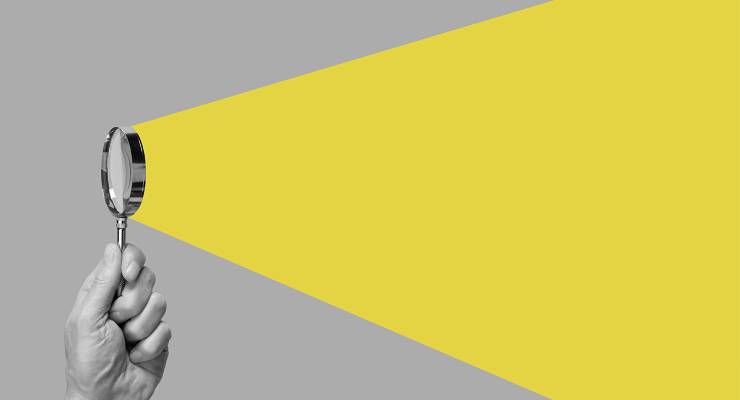
Last month Bruce Lander, a former commissioner in the South Australian Independent Commission Against Corruption, called for the nation to create a watchdog agency separate from universities to look into cases of potential scientific misconduct.
He’d come to that conclusion after digging into the high-profile case of Mark Smyth, formerly of the QIMR Berghofer Medical Research Institute, which initially involved alleged delays and obfuscation by the institutions involved.
Others familiar with the abysmal record of Australian universities self-policing have been making these calls for some time. Far more scientific misconduct occurs than anyone is willing to admit, as we have argued. But just as scientists and universities elsewhere have pushed back — and continue to — against more oversight, Dr Cathy Foley, Australia’s chief scientist, says she is “not opposed to an integrity body, but I haven’t seen a sufficiently robust case yet”.
What Foley, who says she is “convinced that Australian research is overwhelmingly of high integrity”, would need in order to be swayed is unclear.
Australia is not the only country that — faced with growing awareness of scientific misconduct, particularly high-profile cases — has taken or has been considering taking steps toward independent oversight of fraud investigations. As of a decade ago, Canada, China, Denmark, Finland, Germany, India, Norway, Poland and Sweden were among them, according to the Council of Science Editors.
One common theme is that even where national bodies have been established, scientists and universities have been successful over time in limiting the authority of such agencies, whether through political pressure or litigation. Those efforts often leave civil and criminal court judges — none of whom, by their own admission, are particularly well-suited to adjudicate issues of scientific integrity — to decide on sanctions and other measures.
In the United States, the Office of Research Integrity often is held up as a model of such government agencies. The ORI was created in the late 1980s as the Office of Scientific Integrity after — as is often the pattern — cases of misconduct that captured the attention of the public and elected officials. Its presence has no doubt created a framework for oversight as well as educational resources for research integrity.
However, often overlooked by people advocating for better oversight in other countries is that the statutes under which the ORI operates provide it authority only to supervise institutional investigations. The ORI — unlike its counterpart at the US National Science Foundation, an Office of Inspector General — lacks subpoena power. Its budget is in the millions of dollars, a rounding error against the tens of billions that the National Institutes of Health, whose funds are in its jurisdiction, spends each year. Much of the agency’s meagre power rests in enforcing the terms of the assurance agreements universities are required to sign in order to receive federal funding — but which some say give institutions wide latitude.
For these reasons and others, the ORI makes findings in only about a dozen cases a year on average, and of late has been embroiled in lengthy legal battles with researchers who hire attorneys to fight fiercely for their due process — while generally ignoring the scientific facts of a case.
The agency typically takes years to review cases and make findings. Worth noting: the ORI recently asked for public comment on its regulations as it considers changing them, and the Association of Research Integrity Officers, a trade group for institutional investigators, has urged it to limit the scope of required investigations.
None of this is an argument against an independent authority in Australia. Quite the opposite: self-regulation has failed around the world, and Australia is no exception. But it is a warning about how to move forward: be careful what you wish for, and be sure to erect safeguards to prevent those with a vested interest to whittle away authority.









Australia needs an ORI or an ombudsman with independence and teeth. We don’t need to re-invent the wheel – Australia should learn from what works in ORIs elsewhere, and take the best parts to establish national research integrity office here.
Conflicts of interest are inevitable when institutions self regulate – independent oversight is essential.
Australia established Sport Integrity Australia to safeguard the integrity of sport. We need a similar national body to handle the Lance Armstrongs in Australian research.
All true, I’m sure. There are plenty of examples of scientific misconduct which should cause concern, and in addition there is troubling evidence of much research simply being irreproducable, for whatever reason, which should raise grave doubts about its validity.
Still, the description in the article of ineffective scientific research regulatory agencies, with insufficient powers and inadequate resources being captured by those they regulate and lacking the independence to defy vested interests who benefit from bending or breaking the rules, only shows them to be much the same as any other regulatory agencies.
There’s been so many proven cases now of deliberate medical and scientific fraud that the only surprising thing is how little most people question what they’re told.
The authors are right: Australia needs an independent Office of Research Integrity. This means one separate from the research councils, the universities, research institutions and hospitals. It should ideally be a publicly funded statutory body, but there are many models to choose from: just about every other OECD country hasl one, and we should seek out the best and copy it, with improvements where needed, but we shouldn’t start from scratch and invent our own. We do this too often.
Leading scientists such as David Vaux have been advocating the establishment of an ORI for 40 years, but their sound, evidence- and ethics-based arguments have fallen on deaf ears, ears closed by conflict of interest and Australia’s extraordinary culture of secrecy.
Please don’t drop the subject.
Oliver Mayo
Independent oversight with integrity standards would solve most problems we face today. The closest we get is legislated independence that is hard to undo.
The difficulty is keeping the body funded and free from political influence overseas and local.
One would think that this sort of corruption would be on top of the list of talking points in mainstream media, with healthy debate and expert guidance interviewed to help the government in its decision making, keeping the public informed and up to date.
Except that they are also industry regulated and in it up to their eyeballs.